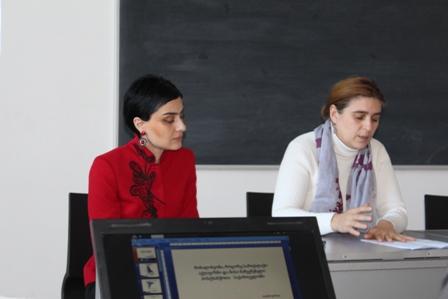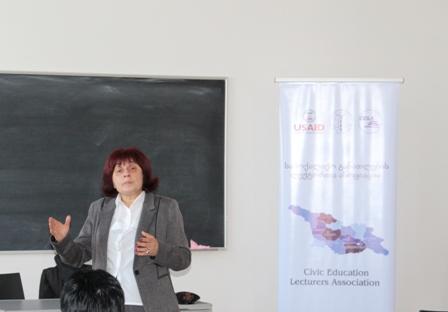One of the greatest challenges following the dissolution of the Soviet Union was promoting citizen engagement in social-political activities. Developing political culture is considered a precondition for social progress, that is why it is important to analyze the 23-year period in Georgia after it regained its independence. This includes understanding the major changes, accomplishments, and remaining challenges as relating to the topic of civic engagement.
With this in mind, on December 21 the Civic Education Lecturers Association (CELA) organized a scholarly conference focused on this topic at Ivane Javakhishvili Tbilisi State University. CELA members and lecturers representing universities throughout Georgia, as well as invited guest speakers, took part in the conference.

Various cultural aspects of social and political transformation over the last 23 years were discussed at the conference. Presentations included the formation of social capital and its role in creating and institutionalizing volunteerism in Georgia, as well as the interactions between a social welfare state and society. Presenters also covered Georgia’s conflict areas and the duties and responsibilities of the state to its citizens in these areas.

A lively discussion was held about political activism of women and their engagement in self-governments. One of the recommendations concerned quotas for women and drawbacks as well as advantage of quotas were discussed during the conference. How effective it can be and what kind of problems it might cause once they are applied.
The conference was made possible by the support of the American People through the United States Agency for International Development (USAID) in scopes of Strengthening Electoral Processes project ( SEP) which is implemented by International Foundation for Electoral Systems (IFES).


